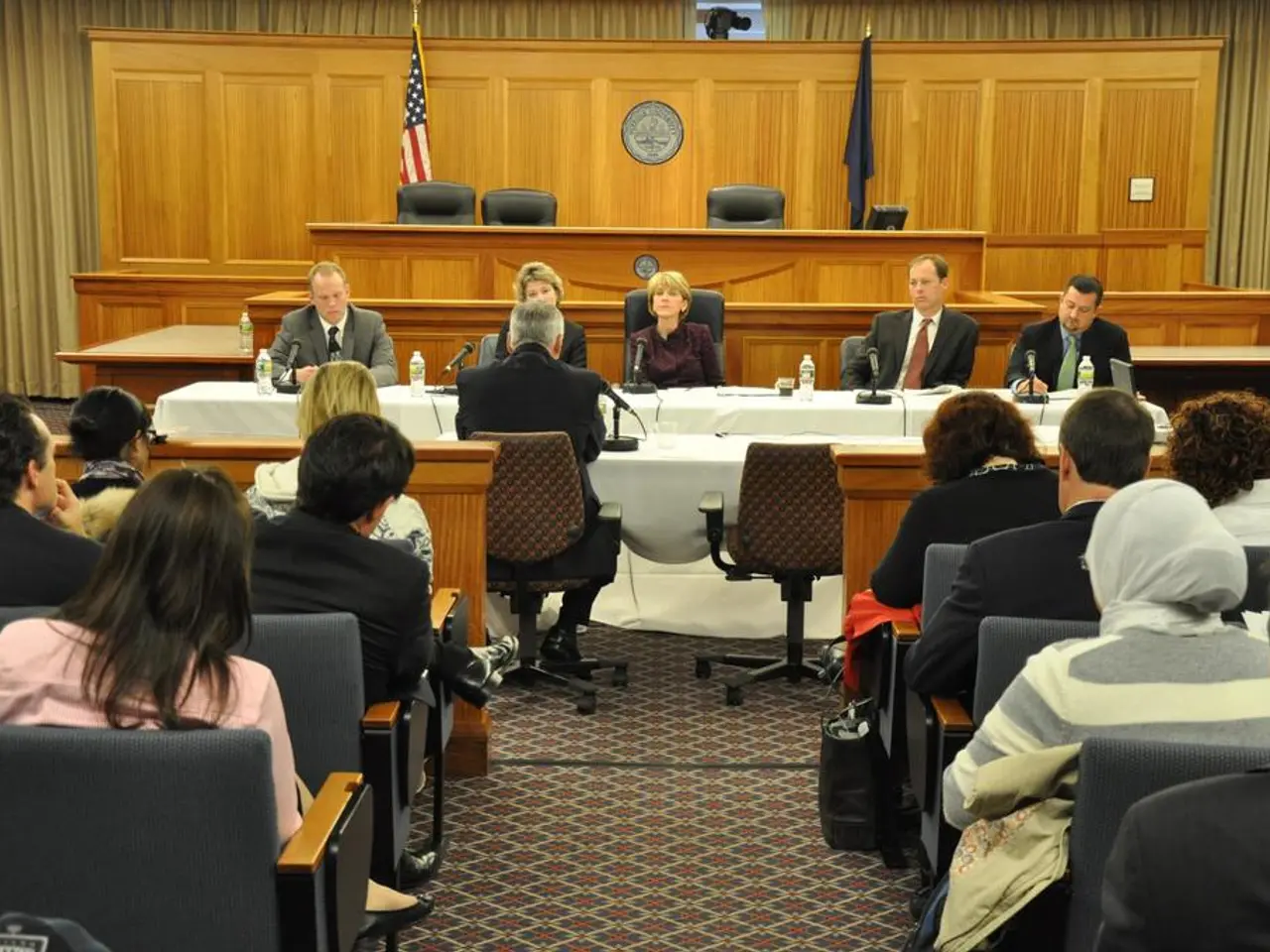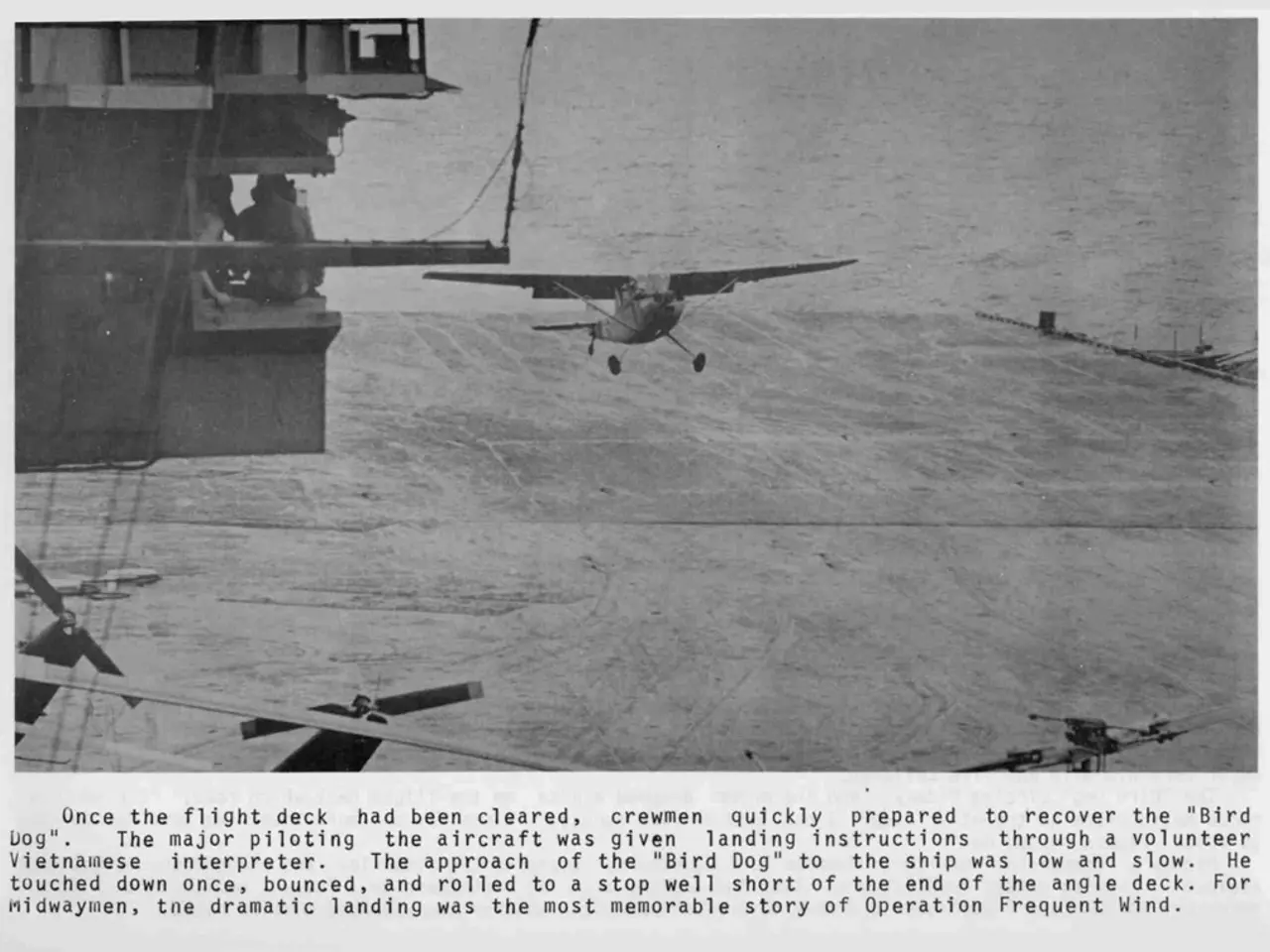A Weekend of Diplomacy: Wadephul and allies aim to engage Iran's Foreign Minister on Friday
Wadephul et al. intend to confer with Iran's Minister this forthcoming Friday. - Iran's minister will hold a meeting with Wadephul and his associates this Friday.
Germany's Foreign Minister Johann Wadephul will meet Iranian Foreign Minister Abbas Araghtschi in Geneva on Friday. This meeting comes hot on the heels of Israel's attack on Iran last Friday, with the news reported by the German Press Agency from diplomatic circles in Berlin.
Initially, Wadephul had planned to visit Lebanon, Syria, and Israel, but he swiftly adjusted his itinerary following the start of Israel's attack on Iran. Instead, he traveled to Saudi Arabia, Qatar, and Oman for crisis talks. The government of Oman, with its close ties to Tehran, was instrumental in facilitating these discussions.
Wadephul's goal with this trip is to coordinate actions among the E3 countries (Germany, France, and the UK), who have been negotiating with Tehran on its nuclear program for years, as well as Iran's Arab neighbors. The aim is to find a diplomatic solution to the ongoing conflict.
The US and Iran had been in negotiations, mediated by Oman, for nearly two months before Israel launched its major attack on Iran. The response from Iran was intense rocket fire.
Negotiations Aborted After War
A new round of talks was scheduled for the previous Sunday in Oman, but these discussions hit a snag over the central issue of uranium enrichment. In recent times, Iran had enriched nearly weapons-grade material. While Tehran expressed readiness to scale back its program as per the 2015 Vienna nuclear deal, it refused to give up its enrichment capability.
US President Donald Trump reiterated his demand for "unconditional surrender" on Wednesday but did not completely rule out further negotiations. He suggested that it's not too late. Trump had unilaterally withdrawn from the Vienna nuclear deal in 2018, after which Tehran also ceased complying with its obligations.
War Intensifies
At a meeting with his Jordanian counterpart Aiman al-Safadi in Berlin on Wednesday, Wadephul announced that he, along with his French counterpart Jean-Noël Barrot, British Foreign Secretary David Lammy, and EU Foreign Policy Chief Kaja Kallas, had made a negotiating offer to Araghtschi in a telephone call on Monday. They remain ready to negotiate a solution if Tehran takes urgent, verifiable confidence-building measures, such as demonstrating that it does not seek nuclear weapons. Wadephul stated, "It's never too late to come to the negotiating table if one comes in good faith."
Meanwhile, the war between Israel and Iran continues unabated. Some observers have expressed skepticism about the possibility of a diplomatic solution to the nuclear dispute with Iran, with Israel justifying its war on the basis of the "existential threat" posed by Iran's nuclear and missile programs.
- Iran
- Israel
- Johann Wadephul
- France
- United Kingdom
- Abbas Araghtschi
- Tehran
- Berlin
- Oman
- Germany
- Geneva
- Donald Trump
- German Press Agency
- Lebanon
- Syria
- Saudi Arabia
- Qatar
- Nuclear Program
- United States
Enrichment Data:
The current status of negotiations between Israel, Iran, Germany, France, the UK, and Iran's Foreign Minister Abbas Araghtschi can be summarized as follows:
- Initial Discussions: Iran has shown interest in negotiating an end to the conflict with Israel but has maintained its pre-conflict negotiation positions without moderation.
- Latest Meeting: On June 20, 2025, Araghchi met with representatives from the UK, France, Germany, and the European Union in Geneva to discuss the nuclear issue and regional developments.
- Stalled Negotiations: The European partners, along with the United States, have demanded that Iran accept zero uranium enrichment, restrict its ballistic missile program, and cease support for proxy forces. However, Iran remains committed to its "right" to enrich uranium, which is a non-starter for the US and Israel, both of whom have rejected Iranian demands and maintained a red line against uranium enrichment on Iranian soil.
- Iran's Position: Iran rejects the European calls to resume negotiations with the US and continues to demand that Israel ends its military campaign before discussions can begin.
- Future Prospects: There are indications from US Special Envoy Steve Witkoff of Iran's tentative interest in resuming talks. However, ongoing tensions and Iran's refusal to modify its nuclear enrichment stance have kept negotiations at a stalemate. The US and Israel continue to demand zero enrichment and further restrictions, with the threat of potential military action from the US looming if Iran does not comply within a specified period.
- France's Role: France has expressed readiness to support negotiations with the US aimed at scaling back Iran’s nuclear and ballistic missile programs, a position consistent with Iran's objective to maintain these programs within limits.
- The Commission, in tandem with adopting a proposal for a directive on the labeling of foodstuffs, is also actively engaged in the diplomatic standoff between Iran and its allies, particularly Germany, France, and the UK.
- Amidst the political tension and ongoing war-and-conflicts in the Middle East, general news outlets are closely monitoring the diplomatic movements, such as the meeting between German Foreign Minister Johann Wadephul and Iranian Foreign Minister Abbas Araghtschi in Geneva, for potential breakthroughs towards a peaceful resolution.






